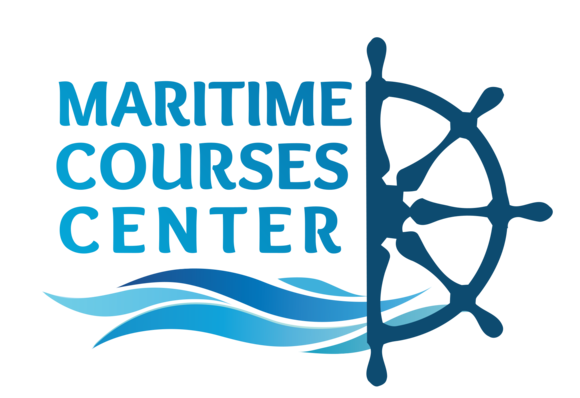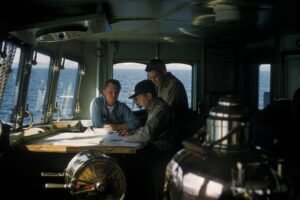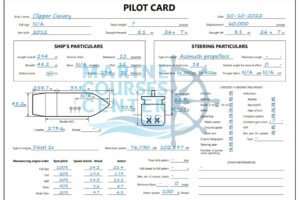
The Importance of Markings on a Liferaft Container

Table of Contents
The Importance of Markings on a Liferaft Container
A liferaft container is a critical piece of equipment for any vessel that operates at sea. It is designed to provide a safe and secure means of evacuation in the event of an emergency. The container itself is constructed from durable materials that can withstand the harsh marine environment. However, the markings on the container are equally important as they provide vital information about the equipment contained within.
In this article, we will discuss the various markings found on a liferaft container and their significance. These markings include the maker’s name, serial number, length of painter, launching instructions, SOLAS, date of last service, number of persons permitted to carry, max permitted stowage weight, name of approving authority, and type of emergency pack enclosed.
Maker’s Name
The maker’s name is an essential marking on a liferaft container as it identifies the manufacturer of the equipment. This information is critical for identifying the origin of the container and ensures that it meets the required standards and regulations.
Serial Number
The serial number is a unique identifier assigned to each liferaft container. It allows for easy tracking of the equipment, especially during inspections and maintenance. This marking is also crucial for warranty and liability purposes.
Length of Painter
The length of the painter refers to the length of the rope attached to the liferaft container. This rope is used to deploy the liferaft in the water and should be long enough to ensure that the liferaft does not collide with the vessel during launch.
Launching Instructions
Launching instructions are critical for the safe deployment of the liferaft. This marking provides information on how to launch the liferaft, including the order in which the painter should be pulled and the method of deployment.
SOLAS
SOLAS, or the International Convention for the Safety of Life at Sea, is an international maritime treaty that sets minimum safety standards for ships. The SOLAS marking on a liferaft container indicates that it meets the requirements set out by the convention.
Date of Last Service
The date of last service is a crucial marking that indicates when the liferaft was last inspected, serviced, and re-packed. This information is vital for ensuring that the equipment is in good working condition and ready for use in an emergency.
Number of Persons Permitted to Carry
The number of persons permitted to carry is a critical marking that indicates the maximum number of people that the liferaft can accommodate. It is essential to ensure that this number is not exceeded to avoid overloading the liferaft, which can lead to instability and potential capsizing.
Max Permitted Stowage Weight
The maximum permitted stowage weight is the maximum weight of the liferaft container, including its contents. This information is critical for ensuring that the liferaft is stowed in a safe and secure location and that the weight is evenly distributed.
Name of Approving Authority
The name of the approving authority is the organization that has approved the liferaft for use. This information is essential for ensuring that the equipment meets the required standards and regulations.
Type of Emergency Pack Enclosed
The type of emergency pack enclosed refers to the contents of the liferaft, including food, water, medical supplies, and other essential equipment. This information is critical for ensuring that the liferaft is properly equipped to sustain the occupants until rescue arrives.
In conclusion, markings on a liferaft container are critical for ensuring the safe deployment and use of the equipment. The various markings discussed in this article provide vital information about the origin, maintenance, and contents of the liferaft. It is essential to ensure that these markings are legible and up-to date



